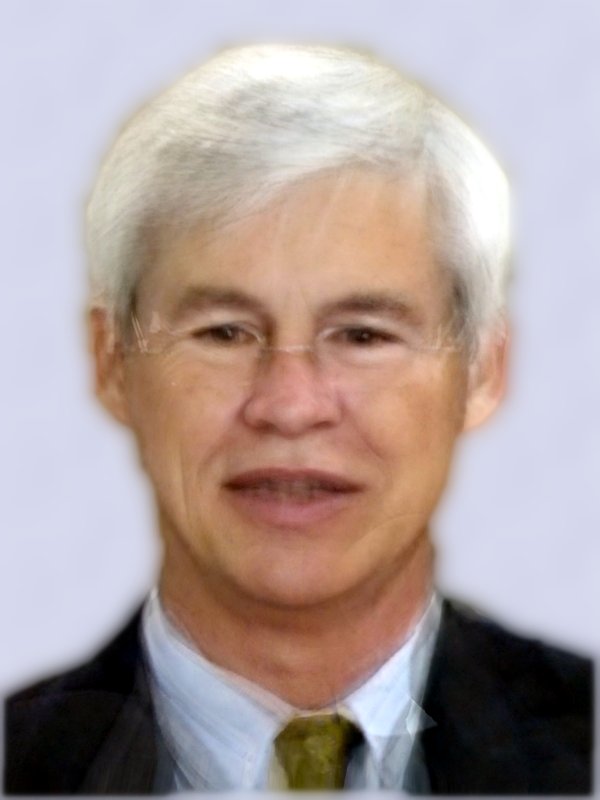- Robert F. Engle
Infobox Scientist
name = Robert F. Engle

caption = A composite picture of Engle
image_size = 180px
birth_date = Birth date and age|1942|11|10|mf=y
birth_place =Syracuse, New York , U.S.
nationality =United States
field =Economics
work_places =New York University 2000-University of California, San Diego 1975-03Massachusetts Institute of Technology 1969-75
alma_mater =Cornell University Ph.D. 1969Williams College B.S. 1964
doctoral_advisor =Ta-Chung Liu
doctoral_students =Tim Bollerslev Mark Watson
known_for =ARCH Cointegration
prizes =Nobel Memorial Prize in Economic Sciences (2003)Robert Fry Engle III (born
November 10 ,1942 ) is an Americaneconomist and the winner of the 2003Nobel Memorial Prize in Economic Sciences , sharing the award withClive Granger , "for methods of analyzing economictime series with time-varyingvolatility (ARCH)".Biography
Engle was born in
Syracuse, New York and went on to graduate fromWilliams College with aB.S. in physics. He earned anM.S. in physics and aPh.D. in economics, both fromCornell University in 1966 and 1969 respectively. [ [http://pages.stern.nyu.edu/~rengle/ Homepage at New York University] ] After completing his Ph.D., Engle became Professor of Economics at theMassachusetts Institute of Technology from 1969 to 1977. [ [http://web.mit.edu/newsoffice/special/nobels.html MIT Nobel laureates] ] He joined the faculty of theUniversity of California, San Diego (UCSD) in 1975, wherefrom he retired in 2003. He now holds positions of Professor Emeritus and Research Professor at UCSD. He currently teaches atNew York University ,Stern School of Business where he is theMichael Armellino professor in Management of Financial Services.Engle’s most important contribution was his path-breaking discovery of a method for analyzing unpredictable movements in financial market prices and interest rates. Accurate characterization and prediction of these volatile movements are essential for quantifyingand effectively managing risk. For example, risk measurement plays a key role in pricingoptions and financial derivatives. Previous researchers had either assumed constantvolatility or had used simple devices to approximate it. Engle developed new statisticalmodels of volatility that captured the tendency of stock prices and other financialvariables to move between high volatility and low volatility periods (“AutoregressiveConditional Heteroskedasticity: ARCH”). These statistical models have become essentialtools of modern asset pricing theory and practice.
More recently, Engle (and
Eric Ghysels ) co-founded theSociety for Financial Econometrics (SoFiE).Personal life
* Paternal Grandfatherndash
Robert Fry Engle, Sr. (b. 1879 d. 1946)
* FatherndashRobert Fry Engle, Jr. (b. 1910 d. 1981,DuPont chemist)
* MotherndashMary Starr Engle ("Murry", French teacher, m. 1939)
* SisterndashPatricia Lee Engle ("Patty", twin, UNICEF official)
* SisterndashSally Starr Engle Merry (anthropologist, twin)
* WifendashMarianne Eger Engle (psychologist , m. 10-Aug-1969, two children)
* DaughterndashLindsey Engle Richland (psychologist )
* SonndashJordan Engle (actor , b. May-1980)Publications
* "Autoregressive Conditional Heteroskedasticity With Estimates of the Variance of UK Inflation" Econometrica 50 (1982): 987-1008.
* "Estimation of Time Varying Risk Premia in the Term Structure: the ARCH-M Model" (with David Lilien and Russell Robins), Econometrica 55 (1987): 391-407.
* "Co-integration and Error Correction: Representation, Estimation and Testing" (withClive Granger ), Econometrica 55 (1987): 251-276.
* "Semi-parametric estimates of the relation between weather and electricity demand" (with C. Granger, J. Rice and A. Weiss), Journal of American Statistical Association 81 (1986): 310-320.
* "Exogeneity" (with David F. Hendry and Jean-Francois Richard), Econometrica 51 (1983): 277-304.
* "Asset Pricing with a Factor ARCH Covariance Structure: Empirical Estimates for Treasury Bills" (with V. Ng, and M. Rothschild) Journal of Econometrics 45 (1990): 213-237.
* "Autoregressive Conditional Duration: A New Model for Irregularly Spaced Transaction Data", (with J.R. Russell) Econometrica 66 (1998):1127-1162.
* "Dynamic Conditional Correlation - A Simple Class of Multivariate GARCH Models" Journal of Business and Economic Statistics (July 2002)ee also
*
Modeling and analysis of financial markets References
External links
* [http://ideas.repec.org/e/pen9.html IDEAS/RePEc]
Wikimedia Foundation. 2010.
